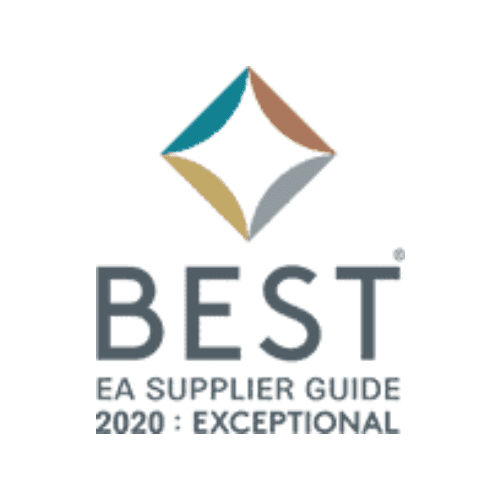

and start saving money now
and start saving money now
Get a FREE Conveyancing Quote
Award-Winning Conveyancing Lawyer In Sunderland - AVRillo Conveyancers
We have one of the finest property lawyers in the UK who have successfully handled several cases of transferring legal ownership between buyer and seller of a property smoothly, safely, and securely, that too at affordable cost. At AVRillo, you will find all solicitors regulated by the Solicitors Regulation Authority (SRA) with CQS accreditation or recognised by the Council for Licensed Conveyancers (CLC).
Residential Conveyancing Services in Sunderland - We Make Your Move Cheaper, Safer And, More Secure!
 Free trial and guaranteed refundIt is our commitment to deliver an excellent conveyancing service to you in Sunderland or nearby areas. Hence, we strictly adhere to the quality assurance standards. We make sure that you are fully satisfied with our services before you continue.
Free trial and guaranteed refundIt is our commitment to deliver an excellent conveyancing service to you in Sunderland or nearby areas. Hence, we strictly adhere to the quality assurance standards. We make sure that you are fully satisfied with our services before you continue.
You can try our services for 30 days and decide if you want to continue or want a refund. You will get your entire money back if you are not satisfied. All the services you received within the trial period will not be chargeable. In-depth understanding of the UK’s real estate marketOur panel of conveyancing solicitors is well-versed with the entire UK’s real estate market. Therefore, when you seek our services in Sunderland, we allot you the solicitor specialized in property transfer cases in that particular area. Our licensed conveyancing solicitors have successfully processed several property-transfer cases in Sunderland. AVRillo has won several awards in seamlessly handling clients’ conveyancing needs.
In-depth understanding of the UK’s real estate marketOur panel of conveyancing solicitors is well-versed with the entire UK’s real estate market. Therefore, when you seek our services in Sunderland, we allot you the solicitor specialized in property transfer cases in that particular area. Our licensed conveyancing solicitors have successfully processed several property-transfer cases in Sunderland. AVRillo has won several awards in seamlessly handling clients’ conveyancing needs. No fee to start the processUnlike other conveyancing service providers in the market, we do not charge you any advance payment prior to picking up your transaction. Hence, you don’t have to pay anything in advance. Once you approach us for the transaction, we begin to work immediately.
No fee to start the processUnlike other conveyancing service providers in the market, we do not charge you any advance payment prior to picking up your transaction. Hence, you don’t have to pay anything in advance. Once you approach us for the transaction, we begin to work immediately. Quicker processing and less fussOur conveyancing services are designed to make the process as straightforward as possible for our clients in Sunderland. We focus to minimize legal jargon to the least so that you can accomplish your transaction with minimal fuss and in minimum time. We finish a normal transaction within two months, which is faster than the average time taken to purchase a property for the first time.
Quicker processing and less fussOur conveyancing services are designed to make the process as straightforward as possible for our clients in Sunderland. We focus to minimize legal jargon to the least so that you can accomplish your transaction with minimal fuss and in minimum time. We finish a normal transaction within two months, which is faster than the average time taken to purchase a property for the first time.
We do not put you at any risky or cumbersome task, especially reviewing the contract that needs one to be highly cautious about as not everyone is honest. If by any means a single point is missed out, you may attract the risk of getting defrauded. Hence, we suggest you get the best conveyancing services as we have a higher success rate than most of our competitors. Sensibly priced and trustedMoving to Sunderland could be very costly if you do not approach the right conveyancer. Our pricing structure for conveyancing services is extremely competitive in the market. We make sure that all your money is worth the service we provide.
Sensibly priced and trustedMoving to Sunderland could be very costly if you do not approach the right conveyancer. Our pricing structure for conveyancing services is extremely competitive in the market. We make sure that all your money is worth the service we provide.
We have a brilliant track record of successful transactions throughout the year. So far, we have worked for thousands of satisfied clients who dropped their testimonials here acknowledging our work. We were awarded many times by many institutions that prove our excellence in handling cases of buying and selling properties in Sunderland. Confidential data protectionFor AVRillo, the safety and security of ownership documents is a top priority. For several years we have been handling these sensitive documents and information and have been successfully keeping them safe. This is all because we update our system to protect your documents from malware and other possible online threats. Additionally, there is an IT team as a standby to handle any undesirable access. Also, when you have a conversation with our solicitor, directly or over the phone, we ensure every single detail remains between you two only.
Confidential data protectionFor AVRillo, the safety and security of ownership documents is a top priority. For several years we have been handling these sensitive documents and information and have been successfully keeping them safe. This is all because we update our system to protect your documents from malware and other possible online threats. Additionally, there is an IT team as a standby to handle any undesirable access. Also, when you have a conversation with our solicitor, directly or over the phone, we ensure every single detail remains between you two only.
Recent Reviews
Conveyancing Process in Sunderland, Tyne And Wear, UK: FAQs
When can I book my removals?
You can book your removal anytime you want because the Stamp Duty Land Tax Holiday of up to £500,000 ended on the 30th June 2021. Also, the temporary relief of up to £250,000 with the stamp duty rate ranging from 2% to 12% of the buying price in England and Northern Ireland ended on 31st September 2021. Now, the stamp duty is back to the normal threshold of £125,000.
However, it is wise to book your removals until after contracts have been exchanged. This is because before that time the registration date is not fixed and if any new relief is offered you may end up losing money.
Why is my Stamp Duty Estimate not as I expected?
The stamp duty on the property is estimated at the beginning of the transaction considering the basic tax rate since at that point we are not aware of a client’s personal tax liability. Hence, we provide all clients with the tax declaration, so we show the exact estimate of the stamp duty on receipt of formal instructions.
What are the common reasons for the delay?
We strictly follow the target of completing the transaction within two months and for this, we follow up with other conveyancers and third parties who are holding things up. Yet, there are a few unexpected circumstances that become the cause of the delay. Some of the common causes of delay are listed below:
- Mortgage applications, taking much longer to process than usual, probably because a reference that the lender requires from a third party is not immediately available, or because the mortgage lender is unusually occupied.
- A single delay at any point in the chain will delay every other process.
- The mortgage company comes up with unforeseen conditions.
- Any member in the chain doesn’t want to process it as quickly as the others.
- Searches or inquiries reveal something not anticipated before.
Who pays conveyancing costs?
Whether you are a seller or buyer, you have to pay the conveyancer whom you hire. For example, you will need to hire a conveyancing solicitor to do the legal legwork for you when selling your home. The task will also include drafting the sale contract and negotiating the terms with the buyer. Then the solicitors of each party will agree on a completion date and oversee the exchange of contracts. For all their effort and services, you have to pay conveyancing costs to your solicitor. Similarly, if you are purchasing a home you have to pay the solicitor for various types of legal tasks. Your solicitor will negotiate the terms with the sellers, request different types of searches, exchange contracts, transfer the funds, and at last register you as the new owner of the property with the Land Registry. This is why you would need to pay conveyancing fees to your solicitor as the charge for these services.
What does ‘joint tenancy’ mean?
Joint tenancy is the situation when two or more people on the same property are together. The owners of such property are called joint tenants where each has equal rights and responsibilities.
When purchasing property, joint tenancy offers equal rights and responsibilities to all parties for the purchased real estate.
Joint tenants receive an equal number of rights in the property, but there are some limitations on how they can use their shares. It also involves the most critical condition of ownership – right of survivorship.
What is the meaning of 'Chain' in conveyancing?
The term chain is used if you are awaiting money from the sale of your house before you can buy another. There is a possibility of you being in a longer chain if you are buying a house from a seller who is buying their next house from people who are in turn planning to buy a property. It means you are at the ‘bottom’ of the chain, the seller is the ‘second’ in the chain, and the last seller is at the ‘top’ of the chain. If anyone in the chain falls through, the chain collapses. The replacement is found immediately by others in the chain or else it leads to the cancellation of the process.
What are conveyancing deeds?
Conveyancing deeds are the papers that show the registered owner of the property. In recent times, conveyancing has become automated and most of the properties are now fully registered at the land registry. Hence, it is possible that when you buy a property, you will not receive any deeds, since they are no longer necessary.
How much time does it take to draft a contract?
Drafting a contract is quite straightforward and is usually done in one to two hours depending on the length of the document. But before drafting a contract, the conveyancer needs time to determine which document needs to be put in the contract. Hence, the time is consumed after collecting, comparing, and reviewing all of the paperwork about the property. The process may take a month or two.
How is ‘exchange of contracts’ processed?
Contracts are almost always exchanged in a phone call. The conveyancer for the purchaser and the conveyancer for the vendor consults with their clients to decide a date and time to make a call for exchanging contracts. On the specified day, the parties exchange the contracts on phone through their conveyancers.
When they get in a call, both the conveyancers hold a copy of the contract signed by their respective clients. They confirm that they are both holding the right version of the contract. This is because most of the time the final or the original draft has some fine adjustments in the clause, terms, or conditions. Therefore, they discuss any minor amendments or correct typos.
After that, they decide a day of completion with mutual consent and the conveyancers confirm that the exchange has taken place. It is specifically mentioned in the contract. Then each of them sends their version to the other through the post. The buyer also pays the deposit, which is usually 10% of the property price.
What kind of conveyancing searches are required in conveyancing?
Here is the list of searches done for a property:
- Local authority search
- Environmental reports
- Drainage and water reports
- Chancel Repair and Indemnity
- Mining reports
- Land registry
- Anti-money laundering reports
- Utility reports
However, the kind of search for a property depends on several factors. For instance, you would not need a coal mining search to check if there is any possibility of a risk in a property if it is not on or near an old mine, or located in the city.
What is a ‘local search’?
The local search is also called the local authority search or the local land charges search. It is a report received from the local authority which contains information specifically about the property and the surrounding area.
When will I get full possession of my new property?
The completion day – the day when the remaining amount of the property purchased in Cambridge or Cambridgeshire is handed over to the seller. Upon receiving the amount, the seller leaves the property and the buyer gets complete possession of the bought asset. The buyer usually collects the keys to the new property from the estate agents. The date of completion is decided on the day of contract exchange.
What is ‘gazumping’ in conveyancing?
When a buyer makes inquiries about the sale of a property from the seller, it is called gazumping. The seller is free to accept the offer of any buyer offering a higher price than the first buyer, as long as the exchange of contracts has not occurred. Some use it to refer to an increase in the initial price agreed at the last moment.
It is good to note that before the exchange of contracts, the deal is not final. Gazumping can be an issue as it wastes the time and money of the buyer on purchasing the property, which they could never own. However, there are few known remedies for the problem above. They include:
1- Ask for a copy of the sale agreement in advance.
2-Ask for a copy of the sale agreement in advance.
3- Sign a lockout agreement after the acceptance of your offer as the buyer.
4- Acquiring a conveyancer beforehand for advice and having the conveyancer look into the property’s details.
- 24 / 7 Online Tracking
- Call Surgery
- Online Payment
- Quote App
- Our Team & Careers
- Conveyancing Today
- Get in touch
- Cheap conveyancing solicitors
- Online conveyancing quote
- Find a conveyancing solicitor
- Solicitors for house buying
- Residential Conveyancing
- Property Conveyancing
- Solicitor Costs For Buying a House
- House Conveyancing
- Conveyancing Guide
- Conveyancing Solicitor
- Residential Solicitors
- Conveyancing




















